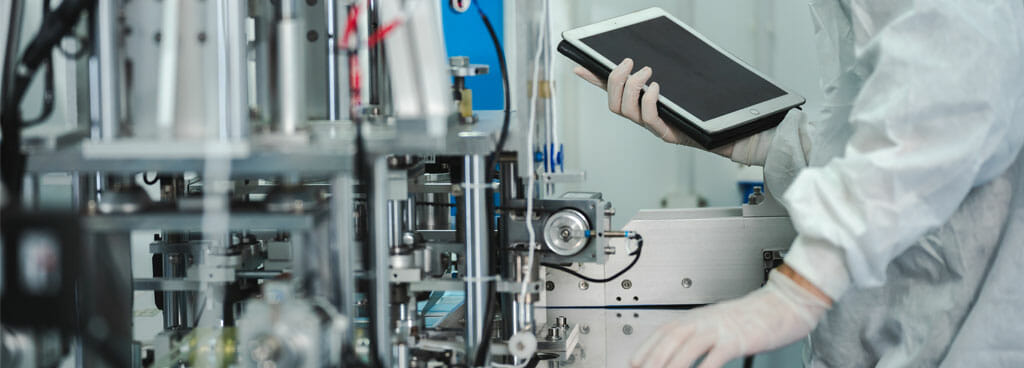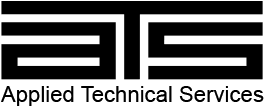- Home
- Services/IndustriesServicesindustries
- About Us
- LocationsStatesAccordion ContentAccordion ContentAccordion ContentAccordion Content
- Job Openings
- Quick Links
- ATS Family

Medical Device Testing
The ATS (Applied Technical Services) Family of Companies offers a wide range of medical device testing. The testing process helps validate medical device performance, functionality, and interoperability. Furthermore, it identifies if a medical device fulfills its predetermined requirements and shows the safety measurements for a device during the design and developmental stage.
Importance of Medical Devices
Medical device testing companies actively stop the spread of infectious illness and disease by performing proper test procedures on medical equipment to verify quality and functionality. Medical equipment assists in treating humans for serious disease, injury, and health conditions when paired with proper medication and treatment. As these are life-saving devices, it is vital to validate their quality before putting them on the market.
Medical Device Testing We Offer:
Fatigue testing applies a cyclic load to a test specimen in order to understand how it performs under real-life conditions. This type of testing determines the sample’s fatigue life, identifies critical fatigue locations, and shows the sample’s level of susceptibility to fatigue.
Tensile testing occurs when controlled tension is put on a sample, stretching the specimen to its breaking point. This test produces information about a metallic or composite material’s yield, tensile strength, and ductility.
Shear testing forces one surface of a sample to move in a specific direction while the other moves in the opposite, creating a sliding motion. This test calculates shear strength—a critical factor for components such as fasteners.
Torsion testing happens by twisting or shear loading a sample along a set point. This test helps manufacturers compile data such as maximum torque, shear stress, and torsional shear modulus. It also locates the material’s breaking angle.
Lot verification testing confirms that each lot of product meets the minimum quality and safety criteria before release.
Wear and simulation testing simulates processes that occur in service environments to determine whether a device performs its function correctly. This testing method reveals the amount of wear a medical device can take to predict its usability in the medical field.
Instrument and life cycle testing applies mechanical procedures to a unit in a controlled environment throughout a specific course of time. The unit will show breaking points, functionality failures, and wear locations.
Non-standard testing ranges from advanced designs to novel materials. It can be anything that does not possess a specific testing standard.
Axial compression testing compresses the specimen with force. It replicates the stresses materials will eventually encounter to determine the local mechanical properties within the critical size defect.
Dedicated Screw Testing
Driving torque testing calculates the amount of force a screw needs in order to drive into a substrate. The data from this test helps customers optimize their designs and shows if they will damage bone.
Pull-out testing determines the resistance of the screw by pulling it out of a substrate. This testing helps the clients comprehend the amount of hold a screw has while in the substrate of a bone.
Shear, fatigue, and lever testing assess the force the screw is able to withstand when levering or moving inside a rod or plate. The test shows the strength of the fixation without the presence of substrate.
Custom Testing
Our Family of Companies is a well-known expert in custom testing. We partner with our clients in order to design tests specific to their needs. Whether they have a cutting-edge implant or a novel material design, we aim to help clients reach their goals safely and efficiently. Not only are we experts in the medical device testing field, but we maintain regulatory, industry, and manufacturing expertise.
Class I are low-risk devices that cannot sustain or support life.
Class II are medium-risk devices that more rigorously tested for safety than Class I but cannot sustain or support life.
Class III are high-risk devices that receive the most rigorous testing because they sustain and support life.
FDA Classifications
The Food and Drug Administration (FDA) classifies approximately 1,700 generic devices and assigns each into 16 different panels. Based on the level of control it takes to assure safety and effectiveness, these classified devices fall into one of three regulatory classes:
Accreditation and Quality Standards
The Family of Companies provides our clients with high-quality medical device testing services by creating rapid responses and reliable results. We employ highly trained technicians ready to assist manufacturers with their testing expertise. Ultimately, our goal is to help manufacturers procure professional reports to meet global requirements, including FDA and CE marketing approval.
The ATS Family of Companies offers a comprehensive scope of accredited mechanical testing standards. We possess ISO/IEC 17025:2017 accreditations. Adding to our list of credentials, our staff maintains an ISO-recognized Quality Management System (QMS). Contact us for any of your medical device testing needs today.

Request Form
"*" indicates required fields
Medical Device Testing
ASTM Testing
- ASTM F1044 Shear Testing of CaP and Metallic Coatings
- ASTM F1160 Shear and Bending Fatigue of Coatings
- ASTM F1264 Intramedullary Fixation Device Testing
- ASTM F1357 Articulating Total Wrist Implant Testing
- ASTM F1378 Shoulder Prostheses Testing
- ASTM F1541 ESFD Testing
- ASTM F1672 Patellar Prosthesis Testing
- ASTM F1714 Gravimetric Wear Assessment of Prosthetic Hip Design in Simulator Device Testing
- ASTM F1717 Spinal Implant Testing
- ASTM F1781 Elastomeric Flexible Hinge Finger Total Joint Implants Testing
- ASTM F1798 Spinal Implant Subassembly Testing
- ASTM F1820 Modular Acetabular Device Strength Testing
- ASTM F1829 Glenoid Locking Mechanism Shear Testing
- ASTM F1875 Fretting Corrosion Testing of Hip Implant Interfaces
- ASTM 2009 Modular Prostheses Taper Connection Testing
- ASTM F2025 Wear Assessment of Polymeric Components
- ASTM F2028 Glenoid Loosening Testing
- ASTM F2077 Intervertebral Body Fusion Device Testing
- ASTM F2183 Small Punch Testing
- ASTM F2193 Spinal Fixation Components
- ASTM F2267 Measuring Subsidence of Intervertebral Fusion Devices
- ASTM F2346 Standard and Dynamic Testing of Artificial Intervertebral Discs
- ASTM F2423 Wear and Fatigue Testing of Total Disc Prostheses
- ASTM F2502 Absorbable Plate and Screw Testing
- ASTM F2554 CAS System Precision Testing
- ASTM F2624 Static, Dynamic, and Wear Testing of Extra-Discal Spinal Implants
- ASTM F2624 Spinal Implant Dynamic Testing
- ASTM F2694 Lumbar Total Facet Prosthesis Testing
- ASTM F2706 Spinal Implant Fatigue Testing
- ASTM F2789 Mechanical and Functional Characterization of Nucleus Devices
- ASTM F2790 Static and Dynamic Testing of Total Facet Prostheses
- ASTM F382 Metallic Bone Plates Testing
- ASTM F384 Angled Orthopedic Fixation Testing
- ASTM F543 Metallic Medical Bone Screw Testing
- ASTM F564 Metallic Bone Staple Testing
ISO Testing
- Biocompatibility Testing for Medical Devices ISO 10993
- ISO-10328 Structural Testing of Lower Limb Prosthetics
- ISO 10993 Biocompatibility
- ISO 10993 Biocompatibility Testing
- ISO 10993 Testing
- ISO 10993 Testing Lab
- ISO 18192-1 Wear Testing for Intervertebral Disc Prostheses
- ISO 12189 Fatigue Testing of Flexible Spinal Implants
Medical Device Testing
- Fatigue Testing Lab
- Implant Testing
- Material Testing Laboratory
- Material Device Regulatory Compliance Testing
- Medical Device Testing
- Medical Device Testing Certification
- Medical Device Materials Testing
- Medical Device Materials Testing Consulting
- Medical Device Mechanical Testing
- Medical Device Mechanical Testing Regulations
- Medical Device Performance Testing
- Medical Device Product Testing
- Medical Device Reliability Testing
- Medical Device Standards Testing
- Medical Device Standards Testing Certifications
- Medical Device Testing Companies
- Medical Device Testing Services
- Medical Device Testing Lab
- Medical Implant Testing Lab
- Orthopedic Device Testing
- Prosthetic Testing
- Prosthetic Testing Services
